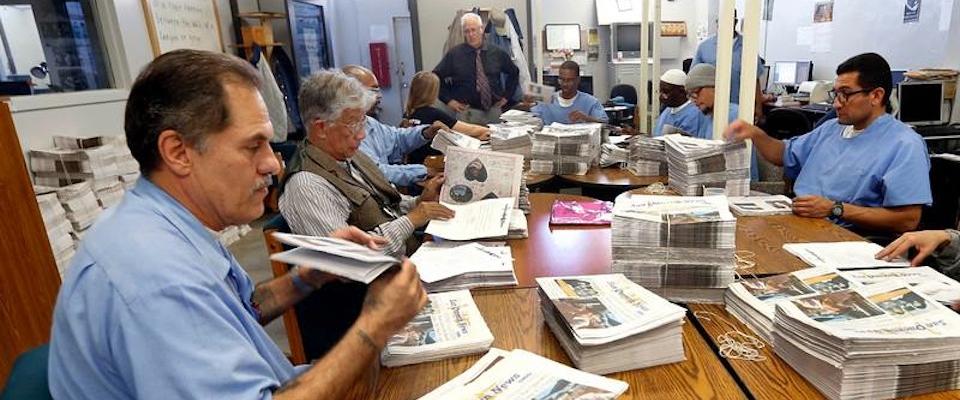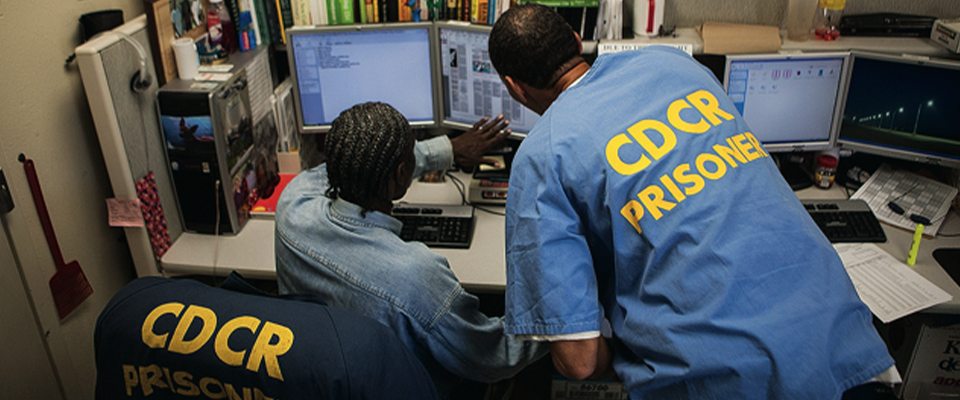Berkeley undergrads study the benefits of computer learning for inmates.
While most people want to avoid the gothic halls of San Quentin State Prison, two Berkeley researchers, West Hays ‘09 and Alayna Johnson ‘10, wanted in. Hays and Johnson are coordinators of Teach in Prison, a DE-Cal class that sends 75 Berkeley volunteers weekly to teach and tutor in San Quentin’s Robert E. Burton Adult School. The two undergrads were recently awarded a $13,000 Bears Breaking Boundaries seed grant to install a computer lab at the prison in order to study the potential of such a facility to reduce recidivism among inmates.
Over the course of a year, 240 inmates will be divided into two tiers of training: basic computer literacy (Microsoft Office); and advanced computer-aided design (CAD), engineering software used for computerized drafting and industrial modeling. Participants in the study must already have been selected for San Quentin’s education program, which includes a machine shop among other vocational and academic classes. The hope is that the CAD training will make parolees more competitive in the job market than does traditional machine training.
“It’s a study of the digital divide,” says Hays, noting that the majority of entry-level jobs require computer skills.
Working alongside the Adult School and California Department of Corrections and Rehabilitation (CDCR), the study will ask participants to update researchers for one year after release, using postcard or online questionnaires, about employment, wages or salaries, and whether they’ve reentered the prison system, along with personal assessments of their training.
This research comes at a critical time for the state’s prisons, and its results could mean a lot for how CDCR pursues rehabilitation in the future. California has one of the highest recidivism rates in the country, with nearly two-thirds of parolees returning to prison within three years of release—yet CDCR doesn’t track how well vocational programs slow this revolving door. To compound this problem, CDCR is facing unprecedented budget shortfalls, announcing in September that the Department would cut $250 million in rehabilitation funding and lay off an estimated 600–900 employees systemwide. Nearly 40 layoffs have hit San Quentin’s Adult School already.
Despite his optimism about the study, Hays is dismayed by CDCR’s “uninspired solution” to the budget problems. “The beauty of sending in 75 volunteers is that we’re recession-proof,” Hays says. “But what if no one’s left to let us in the door?”




















